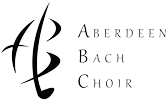The newly-unified Great Britain was ready and waiting for a new musical voice and, at the start of the eighteenth-century, London was, by some way, the wealthiest city in Western Europe. (This represents a staggering rise of fortune given both the bubonic plague and the great fire of London which had ravaged and destroyed the city a mere decade or two before Handel’s birth.) The new wealth led to a cosmopolitan explosion of new opportunities and extravagant taste amongst the ruling classes, chief amongst these being a predilection for the newly-imported and exciting genre of Italian opera which was becoming very fashionable very quickly. (This is somewhat ironic given that in Rome at the time the performance of opera was still prohibited.)
Whilst on sabbatical in London, Handel gave concerts at the Royal Court of Queen Anne (1665-1714), where his “…writing for trumpets made a great sensation”. He also ingratiated himself at the opera house: the newly opened Queen’s Theatre on the Haymarket (the very same theatre known today as Her Majesty’s Theatre, and where Andrew Lloyd-Webber’s Phantom of the Opera has been running continuously since 1986). Aaron Hill, Director of the theatre at the time, gave Handel a libretto from which emerged the opera Rinaldo. This was the first truly Italian opera composed especially for performance in London. Handel completed the piece in a fortnight, much of the music being adapted and parodied from his earlier secular cantatas written in Rome. It was given over twenty performances and was a sensational success. Hill went to a great deal of trouble to make this production a spectacle, with elaborate scenery, impressive machinery to move it about, and, amongst other things, a fresh flock of live sparrows released into the theatre at a specific moment during every performance. The cast was led by three alto castrati, including the very well-known and popular singer at the time, Nicolini, in the title role. The plot, set in and around Jerusalem during the First Crusade, provided Handel with the perfect opportunity to display to the wealthy and the culture-hungry his talents as a composer, harpsichordist and conductor.
Following this success, Handel was recalled by his employer and left London in 1712 returning to Hanover where, for the next eighteen months, he was obliged to spend time producing chamber and orchestral music – there being no opera house in Hanover. The so-called Hanoverian duets, written for Princess Caroline (later Queen Caroline of Great Britain) with continuo accompaniment, also date from this time. A letter of 1713 from Handel to his mother shows that it was his intention – or maybe that of his employer – to return to London. By now Handel was studying English, and had struck up a friendship with the English poet John Hughes (1677-1720), whose short text on the subject of Venus and Adonis Handel turned into a secular cantata. This was Handel’s first attempt at setting English words to music. In the autumn of 1713, he gained the Elector’s permission to make a second visit to London, this time residing as a house guest of Lord Burlington in Burlington House on Piccadilly – the impressive building which today is home to the Royal Academy of Arts. Here he settled into a comfortable routine of composing during the day and playing at concerts by night. Burlington was wealthy and a prominent patron of the arts, and he made Handel very welcome. Four more operas date from this period (Il pastor fido, Teseo, Amadigi di Gaula and Radamisto). Later that year, Handel was given a pension of £200 p.a. by Queen Anne, in return for which he was obliged to divide his attention between composing Italian opera and providing English church and ceremonial music for the British royal establishment. On the back of this pension he moved from Burlington House to a stylish new townhouse in Mayfair. (Today the building is marked by an English Heritage blue plaque.) It appears that the Elector was happy enough for Handel to remain both in his employment, but also in London, as there is no evidence of his having recalled Handel to Hanover.
On August 1st 1714 Queen Anne died without having produced any children who survived past childhood. Parliament had ruled out a Catholic successor, both then and for ever, and so the Elector of Hanover (great-grandson of James VI and I) duly moved to London, ascended to the throne as King George I, and immediately made Handel a full time member of the royal staff, raising his annual salary to £600, half of which was paid by the court in Hanover. Despite his tangible genius, his proximity to the monarchy, and his growing popularity, Handel was never appointed to the prestigious and coveted post of Master of the King’s Music – the musical equivalent to the position of Poet Laureate. During all of his time in London this position was held firstly by John Eccles (1668-1735) – the longest ever incumbent of the post with thirty-five years’ service, and, on his death, by Maurice Greene (1696-1755), the organist of St Paul’s Cathedral. Handel’s eminence, talent and popularity as a composer trumped both of these gentlemen, but seemingly did not outweigh his German nationality; the Hanoverian kings always playing safe by selecting lesser composers, but ones with unimpeachable native breeding.
The final of a series of treaties, known collectively as the Treaty of Utrecht was signed in 1714, leading Handel to compose the Utrecht Te Deum, the first performance of which he gave in St Paul’s Cathedral playing the newly installed Father Smith organ (about which he was rather disparaging). Rehearsals for this were so popular that they were held before a paying public. During this time he was also responsible for the musical education of the daughters of Queen Caroline. As far as we know, these were Handel’s only pupils during his entire lifetime – something which sets him apart from nearly all of his contemporaries and immediate successors.


























